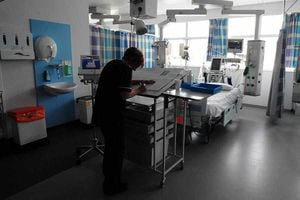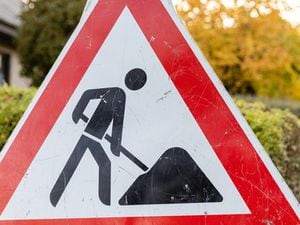Revealed: How much health bosses earn across the West Midlands
More than 1,100 NHS chiefs are being paid at least £100,000 a year in parts of the West Midlands.

And 14 GPs across the region earned up to £300,000 in a year, with 503 raking in between £100,000 and £200,000.
Fifty-five earned at least £200,000 in a year.
Sandwell and West Birmingham NHS Trust had the highest number of top-paid bosses, with 264 getting more than £100,000, compared to 246 in Staffordshire, 180 in Wolverhampton, 140 in Dudley and 109 in Walsall.
Some 53 of these roles are non-clinical.
Campaigners say at a time when NHS budgets are being slashed, rocketing wages like this are unacceptable.
In Sandwell and West Birmingham, there were nine NHS staff getting at least £200,000 a year, compared to 18 in Staffordshire, 11 in Worcestershire, four in Wolverhampton, two in Dudley and one in Walsall.
West Midlands Ambulance Service paid five people more than £200,000.
In total, 1,171 people got more than £100,000 a year
The Taxpayers' Alliance has gathered the figures through a thousands of Freedom of Information requests to trusts across the country.
Nationally, there were at least 50,137 employees of NHS organisations and GPs who were paid at least £100,000 in 2013/14, including 37,034 employees of NHS trusts and clinical commissioning groups, 10,735 GPs, 1,794 general dental practitioners and 534 employees of NHS quangos.
Some 1,757 received more than £200,000, 203 more than £300,000, 60 more than £400,000 and eight more than £500,000.
The campaigners say that between 1999 and 2008, NHS spending increased in real terms by an average of 6.3 per cent per year.
But they argue that, given impending demographic challenges and the fact that the kind of budget increases of the 2000s are simply not feasible, productivity will have to increase and pay will have to be restrained.
A 2010 report from the National Audit Office found that: "Over the last ten years, there has been significant real growth in the resources going into the NHS, most of it funding higher staff pay and increases in headcount. The evidence shows that productivity in the same period has gone down, particularly in hospitals."
Taxpayers' Alliance chief executive Jonathan Isaby said: "No-one begrudges paying doctors and nurses well for the tough jobs that they do, but it's galling to see bosses at failing hospitals continuing to rake in the cash.
"It's an insult to taxpayers, but it's even worse for the patients who have suffered because of mismanagement, and worse.
"The rewards-for-failure culture is rife in the NHS and it must be stamped out as a matter of urgency."
Rob Webster, chief executive of the NHS Confederation said being a chief executive in the NHS was 'one of the toughest jobs in the country'.
He added: "In the toughest environment for the NHS in a generation, we need good leaders who can transform care. They need the ambition and the skills to take people with them, and have the stability and time to build relationships around a common shared goal for their local population."





